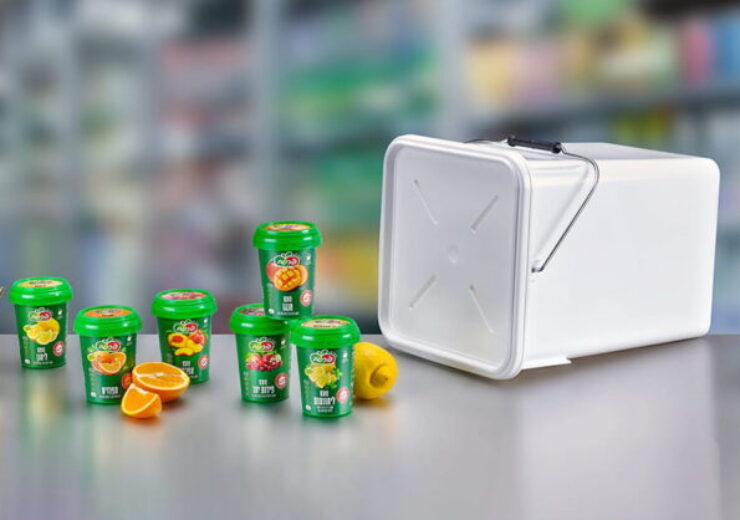Berry has provided a 21L SuperCube container and a 280ml custom version of its UniPak container to ensure product protection and integrity throughout the supply chain of frozen fruit juice concentrates

Berry to offer freezer-safe juice packaging to Gat Foods. (Credit: Berry Global Inc.)
US-based Berry Global has partnered with fruit-based solutions provider Gat Foods for two different packaging options to offer absolute freezer safety for the latter’s range of fruit juice concentrates.
Berry, a plastic packaging products maker, has provided a 21L SuperCube container and a 280ml custom version of its UniPak container.
Each packaging solution is said to have a robust design that ensures product protection and integrity throughout the supply chain.
Gat Foods purchasing director Miriam Vider said: “The freezer safety of the packaging for our frozen fruit juice concentrate is naturally extremely important.
“Previously, we experienced cracks, particularly in the lids and during transportation. Naturally, this resulted in claims and wasted produce. To address this issue, we set out to find a packaging partner capable of guaranteeing freezer safety for our frozen juice concentrates.”
The Berry containers have provided additional advantages to Gat Foods’ palletising procedures and packaging artwork quality in addition to freezer safety.
Previously, the big containers could not be palletised automatically due to the brittleness of the lids, therefore each drum had to be manually sealed with a hammer, the packaging products maker said.
Berry’s SuperCube has made it possible for Gat Foods to automate this procedure, resulting in considerable time savings and operational simplification.
In a separate development, Berry announced its partnership with Deaconess Midtown Hospital and Nexus Circular.
The deal intends to recycle non-hazardous, sterile, plastic packaging and nonwoven fabric safely and effectively from Deaconess Midtown Hospital’s Surgical Centre.
Through this initiative, about 500 pounds per week, or 350 bags, of clean, used plastics from the hospital’s surgical suite, pharmaceutical department, laboratory, and warehouse are kept out of landfills.
These plastics primarily include the protective exterior packaging from surgical tools that are removed before surgery and unused nonwoven surgical cloths and gowns.
Berry Health, Hygiene, and Specialties Division president Curt Begle said: “In addition to helping keep waste out of our environment, this initiative recycles valuable, sterile materials that were previously landfilled and provides new feedstock streams that can be used to produce new plastics, creating a circular loop.”
